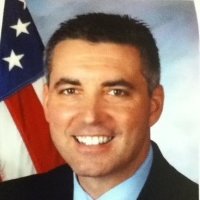WEST | WORKSHOPS
JUNE 15 – 17, 2020 – M RESORT – LAS VEGAS, NV
WORKSHOPS | BE IMMERSED
June 17, 2020 | 9:30 AM – 12:30 PM
Interactive, full-day workshops take place on the last day of the conference and are on a first-come, first-serve basis.Reserve your seat by selecting the workshop that you would like to attend on the package page when registering.
Note: Workshops are INCLUDED with the Conference Pass.

Mark Williams, PASS

James DeMeo, USESC

Chris Dorn, Safe Havens International

Abigail Boyer, Clery Center
Workshop A | PASS Guidelines Updates: Helping Administrators and Security Directors Effectively Evaluate and Prioritize Safety and Security Investments
Mark Williams, Board Chairman, PASS
K-12 and Higher Ed
- What do we do?
- How do we prioritize?
The PASS Guidelines and Checklist were developed to provide administrators with the means to effectively evaluate safety and security infrastructure already in place, prioritize investments and maximize safety and security gained by leveraging available resources.
Attendees Will:
- Understand the Safety and Security Challenges Facing our K12 Schools.
- Understand the Concept of Layered & Tiered Safety & Security as well as Components and Best Practices to deter, detect and delay adversarial behavior.
- Understand how the PASS Guidelines and Checklist/Assessment Tools can be utilized by schools to implement and enhance the Safety and Security of their facilities.
Workshop B | After School Hours: Event Security and Emergency Preparedness
Chris Dorn, Senior Analyst, Safe Havens International
K-12
- Prepare a crisis response for special events and after hours programs.
- Develop plans for staff who may be volunteers or from another organization.
- Use scenarios to train, document and test the fidelity of plans and procedures for both the school day and after hours.
Workshop C | Clery Center: Annual Security Report Review and How to Avoid Common Mistakes
Abigail Boyer, Associate Executive Director, The Clery Center
K-12 and Higher Ed
- Your most recent or current draft annual security report.
- The resources you sent prior to the session – you can access digitally during the session using a computer or tablet or print the materials prior to attending CSC.
- Learn common Department of Education findings related to the annual security report
-
Review what information must be reflected in the annual security report
-
Develop strategies and resources to use to compile the annual security report
Workshop D | Campus Events, Controversial Speakers, and Protests: Creating Policies for Maintaining Safety, Security and University Support on Campus Panel
James DeMeo, CEO, USESC
Higher Ed
- Understand the importance of integration of technologies/physical security and its impact.
- Learn about the numerous challenges facing today’s event security leaders and receive insight on what to plan for during this election year.
- Recognize the value in combining law enforcement operations with university resources in planning large events.
If you do not receive our e-mails and/or have any questions, please complete click the button above to complete the form or contact Olivia Moriarty at [email protected] or 774-505-8012.
” CSC is the conference to attend. If you are not there, you are missing out! “
— Scott Leven, Director of Safety and Security, Ozarks Technical Community College